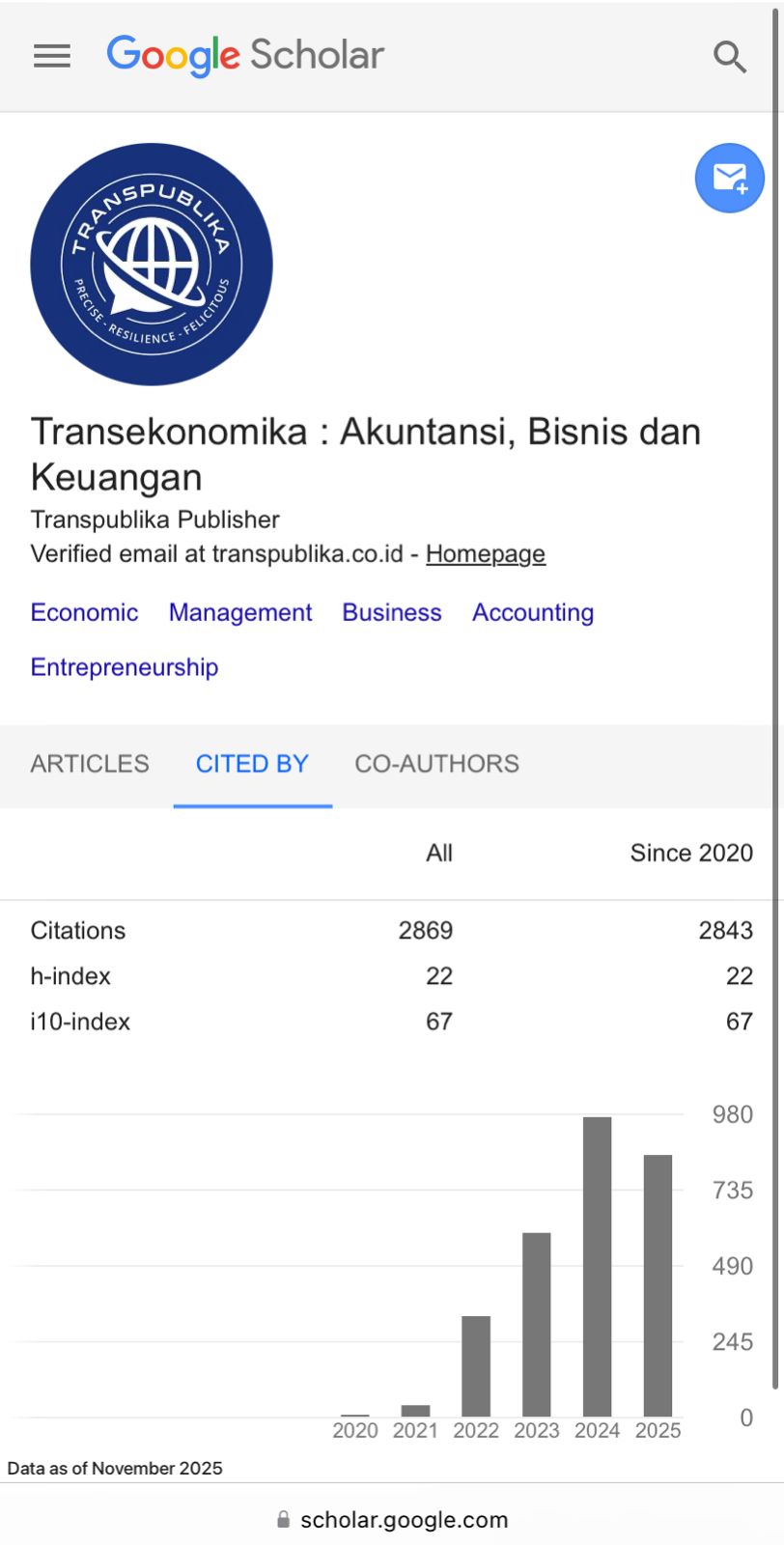ANALISIS PERILAKU MASYARAKAT TERHADAP SEKTOR KULINER DI ERA ADAPTASI BARU PASCA PANDEMI COVID-19
DOI:
https://doi.org/10.55047/transekonomika.v2i5.179Keywords:
Culinary, New Adaptation Era, Society, Creative, Value AddedAbstract
The culinary business is the thing that is most in demand by people of all ages, be it before the emergence of the covid-19 pandemic, the era of the covid-19 pandemic and post-pandemic or commonly called the new adaptation era. Currently, culinary is never empty of fans because it is related to food. The advantages of this sector in addition to the potential to get big profits, but also very many choices, especially if the actors in the culinary business have high creativity. In this new adaptation era, many changes have occurred in terms of the creative industry in the culinary sector. This writing aims to find out changes in people's behavior towards the culinary sector in the new adaptation era by connecting the causes and effects of the covid-19 pandemic by describing the steps regarding what things are done by culinary business people. The method used is descriptive qualitative method which explains systematically and factually. The results of the study show that the current behavior of people in the culinary sector actually follows the flow of habits that occurred before, such as the emergence of creative, innovative, and practical ideas. Therefore, in a business, especially culinary, it is necessary to update every innovation so that it can become value added to the attractiveness of consumers or society.
Downloads
References
Amelia, D. S., Suwarni, L., & Mawardi, M. (2020). Kesiapan Rumah Makan di Era New Normal. Jurnal Ilmu Kesehatan Masyarakat, 9(04), 216–221.
Arisinta, O. (2021). Evaluasi Strategi Pemasaran Produk Bagi Pedagang Kaki Lima Selama Masa Pandemi Covid 19 di Stadion Bangkalan. Al-Muhasib: Journal of Islamic Accounting and Finance, 1(2), 118.
Aulia, N., Randi, R., Alfatiha, M. R., Fatoriq, H. I., & Panorama, M. (2022). Studi Pemulihan dan Pengembangan Ekonomi Kreatif Sub-sektor Kuliner Pasca Pandemi (Covid-19) dalam Menunjang Pertumbuhan Ekonomi di Provinsi Sumatera Selatan. Berajah Journal, 2(1), 177–187.
Ezizwita, E., & Sukma, T. (2021). Dampak Pandemi Covid-19 Terhadap Bisnis Kuliner Dan Strategi Beradaptasi di Era New Normal. Jurnal Ekonomi Dan Bisnis Dharma Andalas, 23(1), 51–63.
Hasyim, R. A., Dammar, B., & Ayasofia, F. (2020). Memprediksi Orientasi Perilaku Konsumen Pasca Pandemi Covid19. Jurnal Abdimas, 7(1), 63–66.
Herlina, H. (2020). Perubahan Fluktuatif Struktur Ekonomi Indonesia pada Masa Pandemi Covid-19. Al-Mutharahah: Jurnal Penelitian Dan Kajian Sosial Keagamaan, 17(2), 199–210.
Rakhmanita, A. (2021). Usaha Kuliner Berskala Mikro dan Kecil di Desa Gunung Sindur Kabupaten Bogor: Kondisi Pasca Covid-19. Jurnal Perspektif, 19(1), 41–47.
Satriadi, S., Reformeizi, M. W., Babheer, S. F. A., Yuanita, A. A., & Harningsih, Y. (2022). Analisis Pemulihan Ekonomi Pasca Covid-19 di Kabupaten Bintan. SNHRP, 279–287.
Singgih, M. N. (2007). Strategi Penguatan Usaha Mikro Kecil Menengah (UMKM) Sebagai Refleksi Pembelajaran Krisis Ekonomi Indonesia. Jurnal Ekonomi Modernisasi, 3(3), 218–227.
Sugianti, N., & Anwar, K. U. S. (2021). Pengaruh Masa Pandemi Covid 19 Terhadap Wirausaha Kecil Di Indonesia. Transekonomika: Akuntansi, Bisnis Dan Keuangan, 1(4), 321–326. https://doi.org/https://doi.org/10.55047/transekonomika.v1i4.57
Thaha, A. F. (2020). Dampak covid-19 terhadap UMKM di Indonesia. BRAND Jurnal Ilmiah Manajemen Pemasaran, 2(1), 147–153.
Yulivan, I. (2021). Peluang dan Tantangan Ekonomi Indonesia Di Masa COVID-19. Jurnal Cendekia Waskita, 5(1).








.png)







.png)


.png)

.png)












